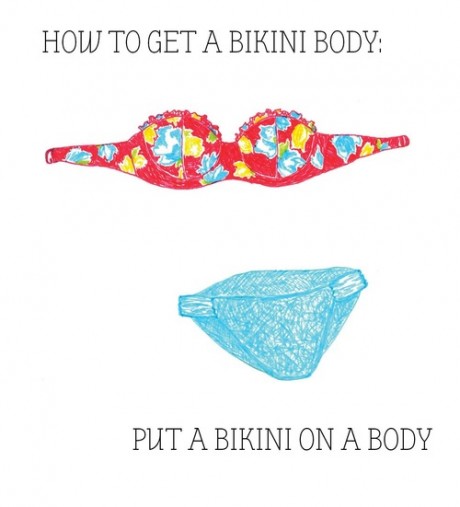By Kim Adamski
“My body, my choice!” This mantra is often associated with pro-choice protests when advocating for safe, legal abortion. In reality, though, it is really the basis of all feminist theory. Feminism advocates for people having the choice to live in a way that is best for them, regardless of their sex, gender, or appearance. The body positivity movement, a relatively recent development in the world of feminism, is frequently criticized for “encouraging” unhealthy habits leading to conditions such as obesity. However, as I see it, body positivity is another issue relating to freedom to choose.
It is a well-known fact, derived from numerous scientific studies, that obesity is highly correlated with unhealthy eating and exercise habits, and as a result, with poor health outcomes. For many, this is an opportunity to criticize overweight people by disguising it as “concern.” The individual’s health is really not anyone’s business but themselves and their doctor. Unless you are specifically asked for advice on health by a person, it is probably a good idea to keep it to yourself. It is more than likely that the person knows about whatever health problems they are at risk for. If they are engaging in unhealthy behaviors that are contributing to being overweight (which is, of course, not always the case – there are many other causes of weight gain, and not all unhealthy people are overweight), that is their choice. It is their body, and they are entitled to do as they wish with it.
Before you protest my words, crying that obesity-related illness is a growing problem in the United States, let me assure you that I am not saying health is unimportant. However, topics such as obesity are much better targeted by public health measures such as nutrition and physical education, promotion of healthy eating choices, and readily available healthcare resources – not shaming the individual. Shaming results only in self-blame, low self-esteem, and poor mental health – none of which are positive outcomes.
I do take one issue with the body positivity movement, however. I do not like the saying “every body is beautiful.” I am sure that upon reading that, you are thinking, “What kind of evil monster are you?” but please, hear me out. My problem with the “everyone is beautiful” angle is that it puts far too much emphasis on physical beauty. Is the point of a body to be beautiful to others? Certainly not. Beauty is totally subjective, and furthermore, no one is obligated to look “pretty” to others. I propose a different approach. Why not, “Every body is useful,” or even, “Every body is a gift,” for example? That better reflects the purpose of a body – to help its owner do things, think things, and communicate things. Whether one’s appearance is appealing to anybody but the individual is unimportant.
Do you know someone that you believe is doing things that may be harmful to their body? If a loved one is engaging in unhealthy behaviors like poor nutrition or inactivity, try a different approach. Ask them to accompany you in doing something healthy, like cooking a meal with you or going on a hike, while making it very clear that they are under no pressure. This gives them the choice to say no if they wish; should they agree, everyone benefits not only from the healthful activity but from the social bonding that working together can foster. Basically, treat them the way you would like to be treated – as person with value and whose preferences and needs are important and worth considering.
Kim Adamski co-hosts a public affairs show on WHUS called Full Frontal Feminism with DJ KBham. Find more information on their Facebook page, facebook.com/fullfrontalfeminism.



